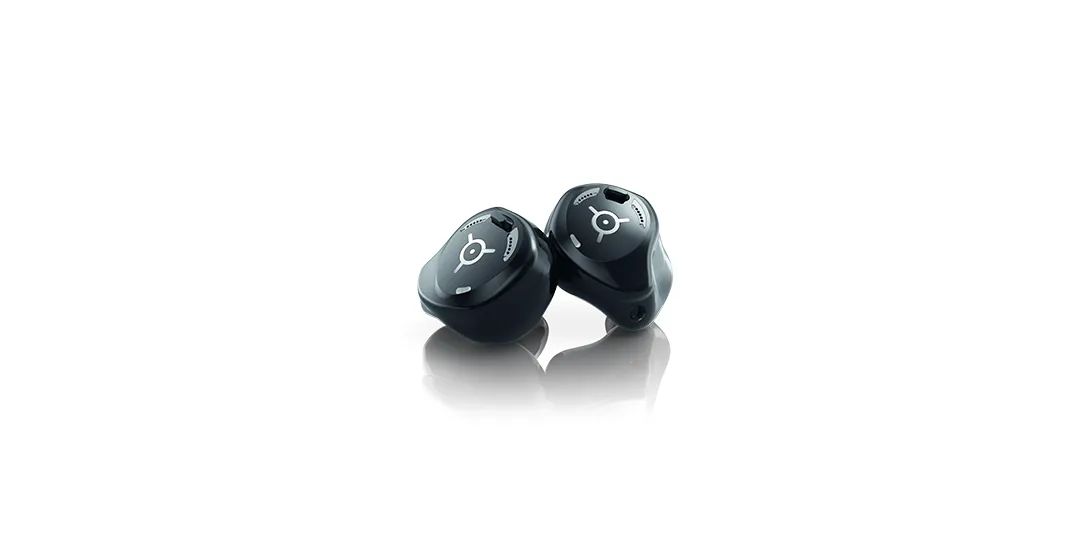Ear Wax: What is it and How Do I Get Rid of It? | Connect Hearing

Ear Wax: What is it and How Do I Get Rid of It? | Connect Hearing
10 min.
Publication Date: March 24, 2020
Have you recently noticed that things are sounding more muffled lately or has there been a low, persistent ringing in your ears? This can be caused by an ear wax buildup or blockage. The number one reason why people suffer from conductive hearing loss is chronic ear wax buildup or impaction.
Keep reading for answers to some of your most pressing questions about ear wax build up and how to properly clean your ears.
What is ear wax?
Cerumen, or ear wax, is an oily, waxy substance that occurs naturally in the ear. It has two purposes: protection from foreign objects, and lubrication of the ear canal.
Ear wax captures tiny particles of debris, dust, and dead skin cells, and prevents them from reaching the ear drum or causing damage. In effect, the ear wax protects the ear canal and lubricates the skin to stop dry, itchy irritation that might develop. Sometimes, excess ear wax can harden causing blockages or buildups that can affect hearing.
How do you recognize ear wax buildup?
There are degrees of discomfort that may be felt with ear wax buildup or blockage and it can be as variable as the amount of wax built up and the length of time it has been building. Here are some of the more prevalent symptoms that accompany an ear wax problem:
Earache or pain in the ear or neck
Sensation of fullness in the ear canal
Hearing loss or noises sound like they’re being heard while underwater
In very young children, it can cause them to stick their finger or an object in the ear out of frustration or agitation. It’s best to have this treated by a healthcare provider to avoid causing damage to the delicate ear of a child.
In older people, ear wax buildup and blockage is the single greatest cause of conductive hearing loss and can be made worse by the use of hearing aids which block the ability for the ear to self-clean.
If you are experiencing severe pain, drainage or an unusual odor coming from the ear, it’s important to seek medical attention immediately. Your ear may be infected and must be treated by a healthcare professional to avoid further infection or permanent hearing loss.
Earphones and earbuds are extremely popular today. If you frequently use earphones, then you need to exercise some precaution.
Should be noted that wax in the ear canal cannot cause ear infections on its own. Complications from inappropriate wax self-removal techniques can.
[ImageInText]
Can ear wax buildup be treated at home?
The only part of the ear that should be cleaned at home is the pinna. The ear is self-cleaning, and having cerumen is healthy/needed. Therefore, in case of ear wax buildup it is in the person's best interest to visit a hearing healthcare professional - the average individual does not own an otoscope that would allow them to even assess blockage (whether partial or complete).
They will assess whether or not removal is necessary. If for any reason the consistency is too hard and the cerumen cannot be removed, the patient will be advised to use a few drops of mineral oil daily for one week before the clinician can safely remove it.
When is necessary to see a doctor?
Again, if you are experiencing significant pain or hearing loss, you may have an infection or something more serious going on that requires professional intervention, i.e., medication, surgery. In that case, you will need to see a health professional to fully resolve the issue.
How can I prevent excessive ear wax in the future?
While some people just produce more ear wax or cerumen than is needed, for most of us there are a few simple things we can do:
Enlist your doctor’s help at your annual check up; once per year should be plenty to keep excess ear wax in check.
Be aware that the only part of the ear that should be cleaned at home is the pinna.
Be careful wearing earbuds or wear them less often to allow the natural self-cleaning to take place.
If you have hearing aids, then be sure to routinely clean your ears to prevent ear wax buildup or blockage. This would be performed by your hearing healthcare provider.
Your ear health is important and removing excess ear wax can make improvements to your hearing and your overall health and wellbeing. Contact us if you have questions about improving or maintaining ear health for you or someone in your family.



